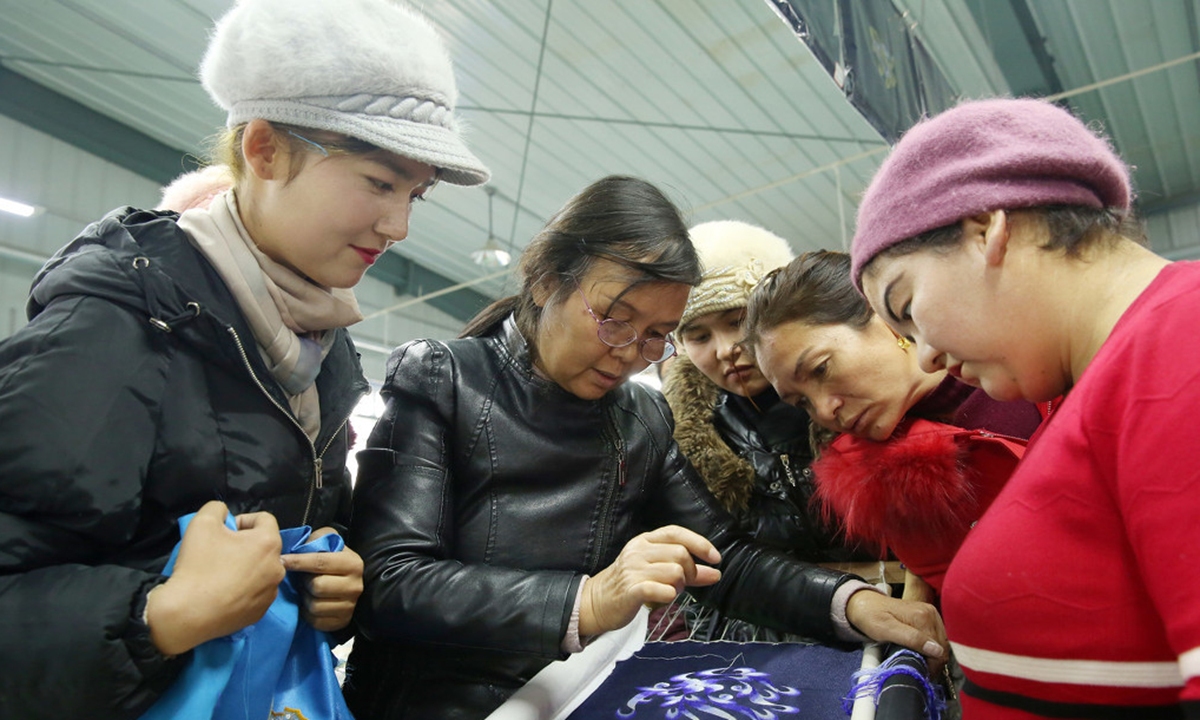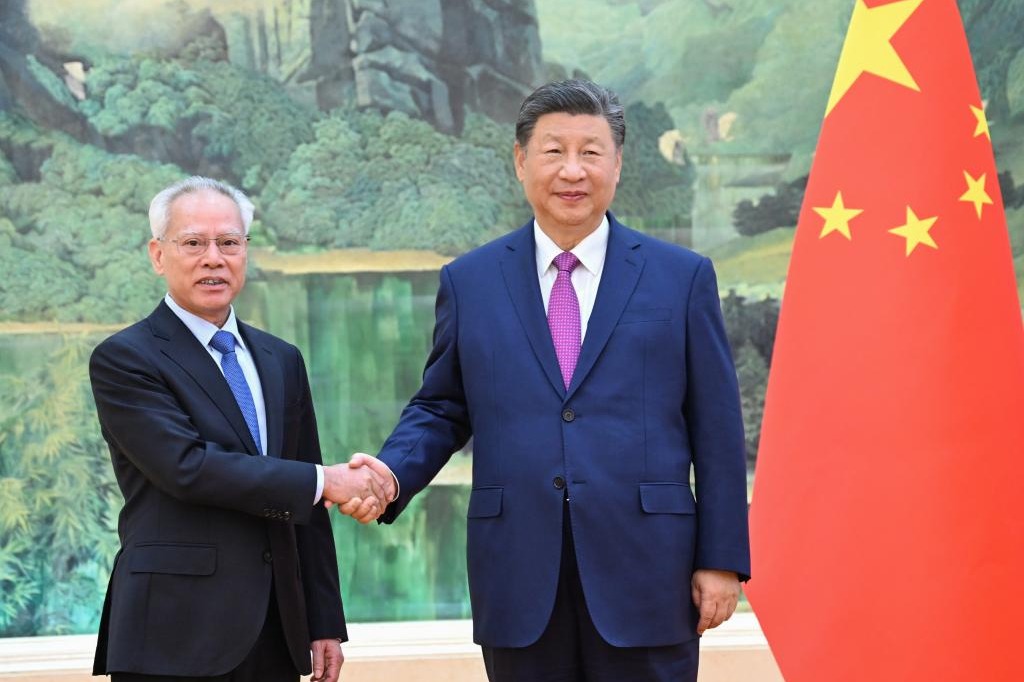Xinjiang workers enjoy full freedom and benefits working in Guangdong, academics find through 9-month-long field study
Global Times | Updated: 2021-03-24 21:24

Hypocrisy of Western 'human rights'
"When a young Uygur man from Aketao talked with us, his eyes were gleaming. When he was herding sheep in the mountains back in his hometown, it was his greatest happiness to find shelter from the wind and sleep against a stone," Nilufer Gheyret said.
She told the Global Times that during the investigation, she cried almost every night when she came back to her residence, not only because she was happy for the workers, but also because she herself came from Xinjiang, so she could understand the feelings of the workers.
"When I first left Xinjiang to study elsewhere and came into contact with the advanced teaching environments and teaching methods, I felt so illuminated," she said.
In comparison, many of her relatives and friends have never even been outside the village. "My relatives' seven children in Shufu county, Kashi, started farming after graduation from junior high school, and each of them only had three mu of land. There was no way to get rid of poverty by farming alone, and the remaining young laborers were easily led down evil paths," she said.
Statistics from the report showed that employment outside Xinjiang brought tangible benefits for the ethnic minority groups in Xinjiang, including increasing family income, broadened horizons, improving language ability and vocational skills, better educational resources for their children, and improved family and social status of women.
The survey found that 46 percent of those workers want to stay in their respective companies to increase their income; 31 percent of them plan to use their savings to start a business in their hometown, while 23 percent plan to move to Guangdong Province permanently.
But for those anti-China forces that enjoy spreading fallacies about Xinjiang, they do not care about such life-changing stories. In a recent report by Zenz, he smeared the labor transfer in Xinjiang with his corny and false accusations. "
Asked what she thought of Zenz's "research findings," Nilufer Gheyret said, "Voluntary, free movement is everyone's right. Should the Uygurs live in Xinjiang for generations and not be allowed to go anywhere else? In winter, many ethnic minorities from Xinjiang go to Hainan [in South China] to spend the winter. According to Zenz's theory, does this mean that they are 'assimilated' by Han people?"
"Throw out the so-called 'reports' that are then hyped by the media to influence public opinion. This is a common method used by Western media outlets to smear others." Chen Ning told the Global Times.
She noted that arrogance and double standards do exist in Western ideology. Limited by this ideological framework, coupled with the fact that ordinary people don't know much about Xinjiang, they often pretend not to hear the facts.
"For example, media outlets like the BBC are doing so. The BBC is now compromising its century-old reputation. As for these so-called 'scholars' and the media claiming that they are 'concerned with human rights in Xinjiang,' whenever I hear this argument, a sentiment pops out in my heart: In the eyes of these Western 'chess players,' people in Xinjiang are only pawns. Chess players only love to win. Which chess player really loves pawns?"
























